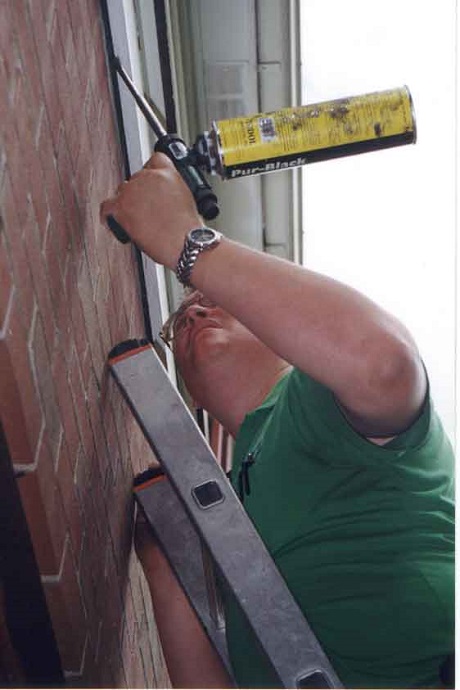
If a raccoon gets into your trash or a bat converts your attic into its home, who are you going to call?
No, not the Ghostbusters.
"Our goal is to help people respond to these conflicts in a responsible and effective manner," said Stephen Vantassel, wildlife damage management coordinator.
The Internet Center for Wildlife Damage Management (ICWDM.org) is an online database that provides users with a wealth of information about how to responsibly handle wildlife damage problems.
While some may be more familiar with wildlife damage than others, it's an issue that many people – whether they live in rural or urban areas – deal with on a frequent basis.
"Wildlife has no respect of boundaries," Vantassel said. "Animals don't say, 'Oh, you're not a producer, so I'm not going to bother you.'"
Deer, Canada geese, raccoons and squirrels are among the animals that have – despite human disturbance – flourished in the wild.
"It's believed that we have more deer today than when Columbus came to America," Vantassel said. "We probably have more raccoons than when Columbus came to America. So while some species have declined, not all species have declined. Some species have exploded because of the availability of food that we provide them."
Wildlife damage management seeks to balance the needs of human activity with the needs of wildlife in order to achieve the mutual enhancement of both. While the solution to an animal-human conflict sometimes requires the human to change his or her behavior, the solution may at other times involve a change in the animal's behavior.
That's where both the website and the National Wildlife Control Training Program come in.
Last year, ICWDM.org attracted 2.1 million visitors from 144 countries. This figure included visitors on U.S. military bases who were hoping to find solutions in dealing with their new foreign wildlife friends.
"We have military bases all over the world and a lot of that traffic is not from the constituents of those areas," Vantassel said. "It's from military officers trying to deal with wildlife conflicts at their bases."
One of the biggest challenges Vantassel and the program face is dealing with the crisis-driven versus interest-driven mindset of many people who encounter a wildlife damage management problem.
"People don't think about wildlife damage management until the raccoon is staring at you from the kitchen table," Vantassel said. "People don't think about us until we’re absolutely needed."
Bearing that in mind, Vantassel said he wants to make people more aware of the resources – many of them free – that are available to the public.
For instance, anyone can access ICWDM.org and use the information to identify wildlife and to discover ways of safely removing them from one's home. Dozens of NebGuides on wildlife damage management are also available for download at http://go.unl.edu/xauj.
If someone has a deeper rooted interest in wildlife damage management and would like to become certified in the field, Vantassel said he recommends completing the National Wildlife Control Training Program (NWCTP). Jointly created by UNL and Cornell University in 2012, the NWCTP is suitable for adoption by states to assist in the licensing of wildlife control operators (WCOs).
"States were saying (that they) didn't have the expertise or the time to create a training program,” Vantassel said. "So we said, 'Okay, we'll create it for you.' The challenge now is getting states to adopt it."
Delaware is the first state to authorize the NWCTP for operators who plan to work in Delaware. The program has been certified by the National Wildlife Control Operators Association and can be completed online or arranged to be taken in-person.
Looking to the future, Vantassel said he wants people to know that when it comes to wildlife damage management – and understanding where it fits within the ecological spectrum – the knowledge they need is right at their fingertips.
"We've been pleased at the number of people who have taken the training program, even when it's not required by their state," he said. "Clearly there's a growing interest. We literally are the leading group in wildlife damage management in the country."
— Mekita Rivas, Natural Resources
Related links:
Internet Center for Wildlife Damage Management
http://go.unl.edu/gyq7
National Wildlife Control Training Program
http://go.unl.edu/2t8j
Wildlife Management NebGuides
http://go.unl.edu/xauj
More details at: http://icwdm.org/